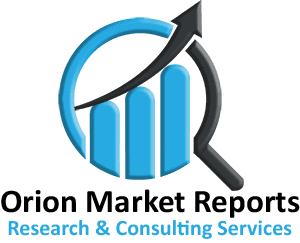Carbon Cost Rationalization Market: Industry Growth and Projections
The Carbon Cost Rationalization Market is rapidly gaining traction as industries worldwide strive to minimize their carbon footprint and align with increasingly stringent environmental regulations. Driven by the push toward sustainability, this market is anticipated to grow at a significant rate, with recent projections estimating a Compound Annual Growth Rate (CAGR) of 7.4% from 2024 to 2031. Carbon Cost Rationalization refers to the process of evaluating, optimizing, and reducing the costs associated with a company’s carbon emissions. It involves assessing a company’s carbon footprint, understanding the financial impact of emissions-related expenses, and implementing strategies to reduce these costs, often while meeting regulatory requirements or sustainability goals.
Global Carbon Cost Rationalization Companies Covered
AlixPartners, Dynatrace, Soben, Vital Energi, Persefoni, Microsoft Sustainability Cloud, Net Zero Cloud by Salesforce, IBM Environmental Intelligence Suite, Sphera, Sinai Technologies, Emitwise, Greenly, Diligent, Sweep, EcoAct
Global Carbon Cost Rationalization Market, Segment by Type
- Cloud-based
- On-premise
Global Carbon Cost Rationalization Market, Segment by Application
- Small and Medium-Sized Factories
- Large Factories
Key Market Drivers
- Regulatory Pressures: Governments and regulatory bodies are intensifying their focus on carbon emissions. Carbon taxes, cap-and-trade programs, and emissions reduction targets are fueling demand for cost-effective carbon management solutions.
- Corporate Sustainability Goals: Companies are increasingly setting ambitious carbon neutrality targets, thereby investing in carbon cost rationalization strategies. This not only reduces compliance costs but also enhances brand reputation.
- Technological Advancements: Innovations in carbon capture, utilization, and storage (CCUS) technologies, as well as AI-driven analytics for emissions tracking, are enabling more efficient carbon management, which supports the market’s expansion.
- Investor Pressure: Stakeholders and investors are emphasizing Environmental, Social, and Governance (ESG) criteria. The pressure to meet these criteria has led corporations to adopt sustainable practices, including carbon cost rationalization, to attract investment.
Market Segmentation and Growth Areas
The Carbon Cost Rationalization Market is segmented by:
- Solution Type: Software solutions, consulting services, and carbon offsetting services.
- Industry Vertical: Energy, manufacturing, transportation, and agriculture are among the primary sectors actively adopting carbon rationalization strategies.
Industries with substantial carbon footprints, such as energy and manufacturing, are expected to lead in market share due to high demand for carbon management solutions.
Regional Analysis
- North America and Europe hold prominent positions in the market, driven by advanced regulatory frameworks and strong corporate sustainability commitments.
- Asia-Pacific is anticipated to experience the highest CAGR during the forecast period, bolstered by industrial growth and government efforts to curb emissions.
Future Outlook
The future of the Carbon Cost Rationalization Market looks promising as climate change awareness rises globally. With the projected CAGR of 7.4%, this market offers substantial growth opportunities for solution providers focusing on sustainable innovation. As carbon costs continue to impact profitability, carbon cost rationalization will play a crucial role in long-term corporate strategy.
The report will be delivered within 48-72 hours after payment confirmation
